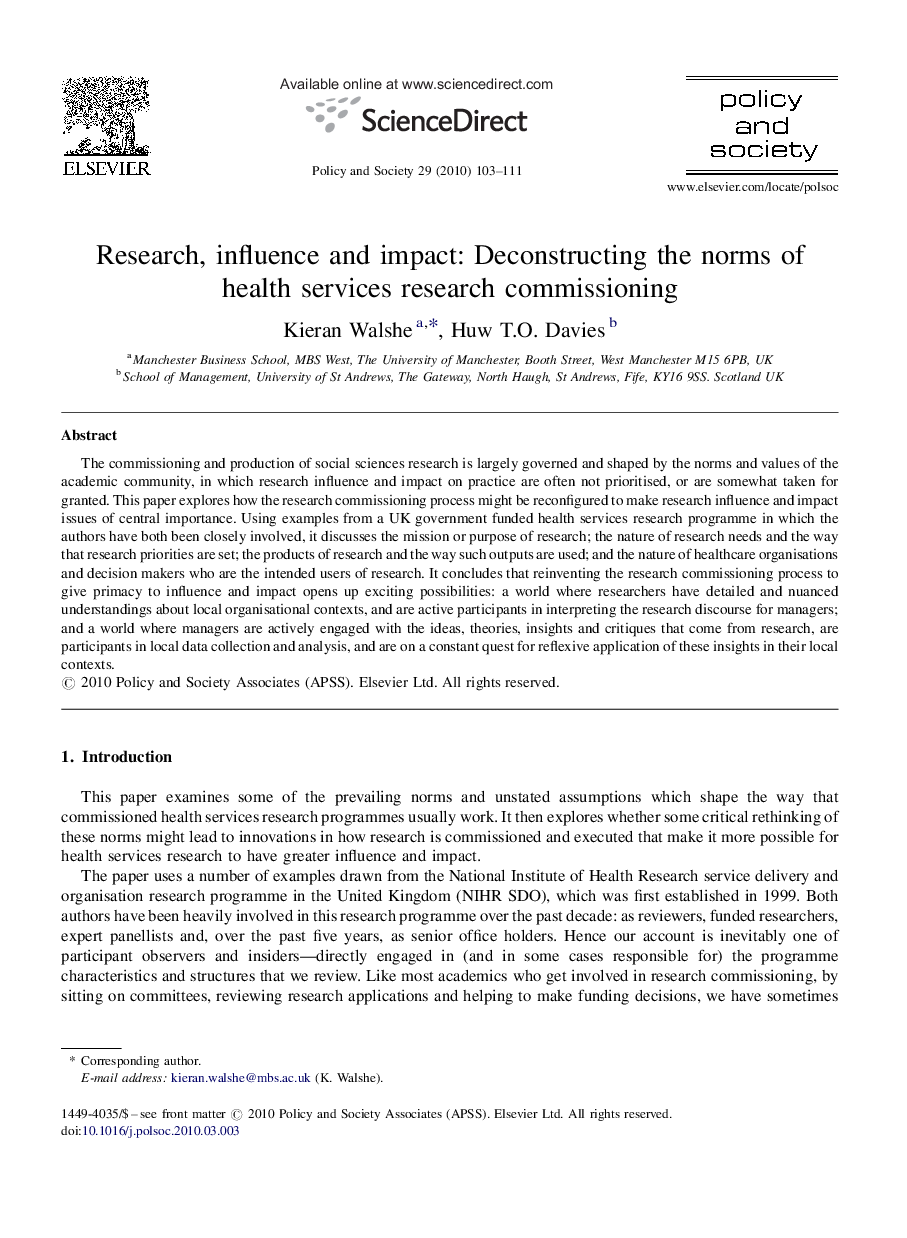| Article ID | Journal | Published Year | Pages | File Type |
|---|---|---|---|---|
| 1061712 | Policy and Society | 2010 | 9 Pages |
Abstract
The commissioning and production of social sciences research is largely governed and shaped by the norms and values of the academic community, in which research influence and impact on practice are often not prioritised, or are somewhat taken for granted. This paper explores how the research commissioning process might be reconfigured to make research influence and impact issues of central importance. Using examples from a UK government funded health services research programme in which the authors have both been closely involved, it discusses the mission or purpose of research; the nature of research needs and the way that research priorities are set; the products of research and the way such outputs are used; and the nature of healthcare organisations and decision makers who are the intended users of research. It concludes that reinventing the research commissioning process to give primacy to influence and impact opens up exciting possibilities: a world where researchers have detailed and nuanced understandings about local organisational contexts, and are active participants in interpreting the research discourse for managers; and a world where managers are actively engaged with the ideas, theories, insights and critiques that come from research, are participants in local data collection and analysis, and are on a constant quest for reflexive application of these insights in their local contexts.
Related Topics
Social Sciences and Humanities
Social Sciences
Geography, Planning and Development
Authors
Kieran Walshe, Huw T.O. Davies,
